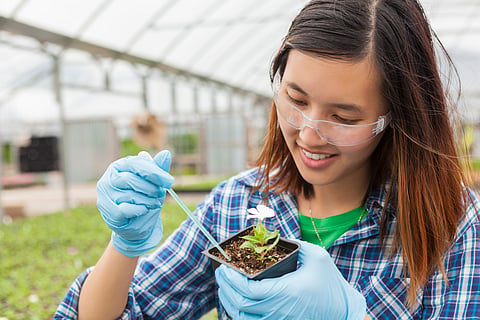
- NEWS
- the EDIT
- COMMENTARY
- BUSINESS
- LIFE
- SHOW
- ACTION
- GLOBAL GOALS
- SNAPS
- DYARYO TIRADA
- MORE

For many Filipina entrepreneurs, the first hurdle to growing a business is not ideas or drive but money. Access to capital remains elusive, with banks often hesitant to lend to small and medium enterprises and microfinance programs too limited for firms ready to scale.
A new initiative is seeking to change that narrative. The Australian Government, through Australian Development Investments (ADI), has extended a USD3 million (P172 million) impact loan to ARQ SME Finance, a female-led lender designed to serve the “missing middle” of Philippine businesses.
The announcement was made by Australia’s Ambassador to the Philippines, Marc Innes-Brown PSM, during the 2X Global Summit in Manila, a gathering of international leaders in finance and philanthropy that focused on investment for gender equality.
“The Philippines is home to extraordinary Filipina entrepreneurs, but many face barriers when they seek funds to grow their businesses,” said Innes-Brown. “Australia is proud to partner with ARQ to help create more business opportunities for women and build economic growth that benefits women and men alike.”
The funding marks ADI’s first impact investment in the country, signaling a shift toward harnessing both public and private capital to address inequality. More than just a loan, the initiative aims to spark a wider movement to close financing gaps that keep women-owned enterprises from scaling up.
While microfinance has long been the face of women’s economic empowerment programs, the reality is that many Filipina-led ventures have grown beyond microloans yet still find doors closed at commercial banks. This is where ARQ SME Finance positions itself, stepping in with more flexible credit models and an emphasis on gender-inclusive growth.
“This investment is a catalyst for resilient, inclusive SME growth,” said Abigail Tan, Co-Founder and Managing Partner of ARQ SME Finance. “It enables ARQ to scale support for Philippine enterprises that embed gender equality, financial governance and sound business practices, driving long-term opportunity across communities.”
Tan’s statement underscores a growing recognition that inclusivity in business is not charity but a competitive advantage. Firms that adopt gender-sensitive policies in leadership, workforce development, and supply chains are more likely to build trust, retain talent, and tap into new markets.
The partnership between ADI and ARQ is also part of a broader wave known as “gender lens investing,” where financial decisions deliberately aim to advance equality. Australia has already backed the Investing in Women program, which works with private sector partners to promote women’s participation in the economy across Southeast Asia.
The Philippines, despite being consistently ranked high in global gender equality indices, faces stubborn barriers in finance. A 2022 report from the International Finance Corporation noted that women-led SMEs in the country face a credit gap of around USD11 billion. Without access to capital, many promising enterprises stall before reaching their full potential.
By directing funds into ARQ, ADI hopes to plug some of that gap while setting an example for other impact investors.
At stake is not just the fate of individual entrepreneurs but the livelihoods of entire communities. Women-owned businesses are more likely to reinvest earnings into education, healthcare, and community welfare, multiplying the social benefits of every peso earned.
Ambassador Innes-Brown highlighted this multiplier effect, stressing that the partnership is not only about business expansion but also about inclusive national growth.
Australia’s approach, anchored in impact investment, attempts to blend financial returns with social progress. Unlike traditional aid, this model channels resources into enterprises with measurable outcomes for poverty reduction, gender equality, and community resilience.
The P172 million loan is symbolic of a deeper bilateral relationship between Australia and the Philippines, one that goes beyond trade and defense into shared commitments for equitable development. For ARQ, it represents a chance to prove that when women entrepreneurs are given the right tools, they can transform industries and societies.
“This is more than funding,” Tan noted. “It is recognition of the power of inclusive business to unlock opportunities for all.”
As the 2X Global Summit closed, the message was clear: impact investment is no longer a niche but a necessity. And for Filipina entrepreneurs long caught between too-big-to-be-microfinance and too-small-to-be-bankable, this new lifeline could be the break they have been waiting for.
